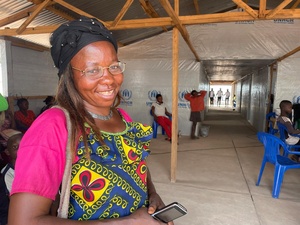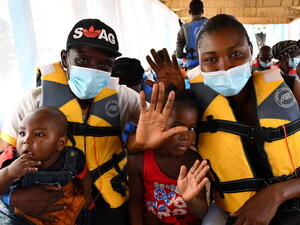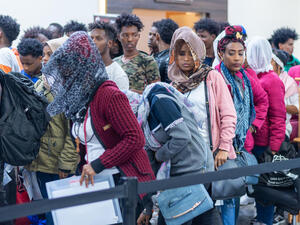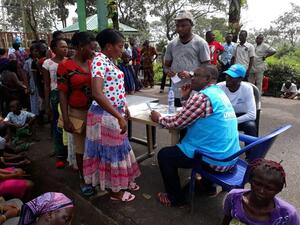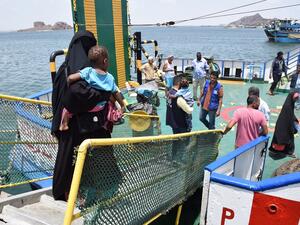Returns in Bosnia and Herzegovina on the upswing
Returns in Bosnia and Herzegovina on the upswing
We have seen a significant upswing so far this year in returns of Bosnians to their homes in areas controlled by another ethnic group. At the end of May, the total number of registered minority returns stood at some 15,600 - more than three times the rate of minority returns during the same period in 1999.
One of the most important factors affecting the decision of refugees and the internally displaced to return home is whether they have a home which they can return to. Many people's properties in Bosnia and Herzegovina, particularly in rural areas, were destroyed during the war. UNHCR is concerned that the lack of international funds for reconstruction of homes and infrastructure may jeopardise the increased momentum on returns.
Up to 3,600 homes are in the process of being rebuilt - each one estimated to cost some US $10,000. But this is not enough to cover those who have already returned this year. UNHCR estimates that some 11,000 houses need to be urgently rebuilt to accommodate people who have already returned during 1999 and 2000 and who have sought temporary accommodation elsewhere. With a growing number of people returning over the summer months, even more houses will need to be rebuilt before the coming winter.
A positive development in this area has been the more stringent implementation of property laws in an increasing number of urban areas across Bosnia and Herzegovina. This has led to some 5,000 properties to date being vacated by illegal occupants, paving the way for the original owners to return home.
While overall security has improved across the country, on a worrying note, there has been an upsurge in violence against minorities returning to eastern Republika Srpska (RS) over the past two weeks. Explosive devices were detonated in the Catholic church in Drventa and on the property of a returning Bosniac in Janja, while a number of other returnees were threatened in south-eastern RS during the final weeks of June.
Elsewhere in the RS though, the slow but steady progress on minority returns has continued. During the third week of June, a minority couple repossessed their home in the town of Pale. Along with 10 other minority families currently displaced in Sarajevo, they plan to return to Pale in the near future. In response to a growing demand for additional buslines for those displaced to visit their homes in eastern RS to start cleaning them up in preparation for eventual return, UNHCR has added an additional bus line to its services. The new line, which will run from Sarajevo to Zepa, will start on 3 July.
A new count of the number of people who have not yet been able to go home got underway in Bosnia and Herzegovina during the last week of June. The process is expected to take some 3 months, and should give a better picture of the situation on the ground.


